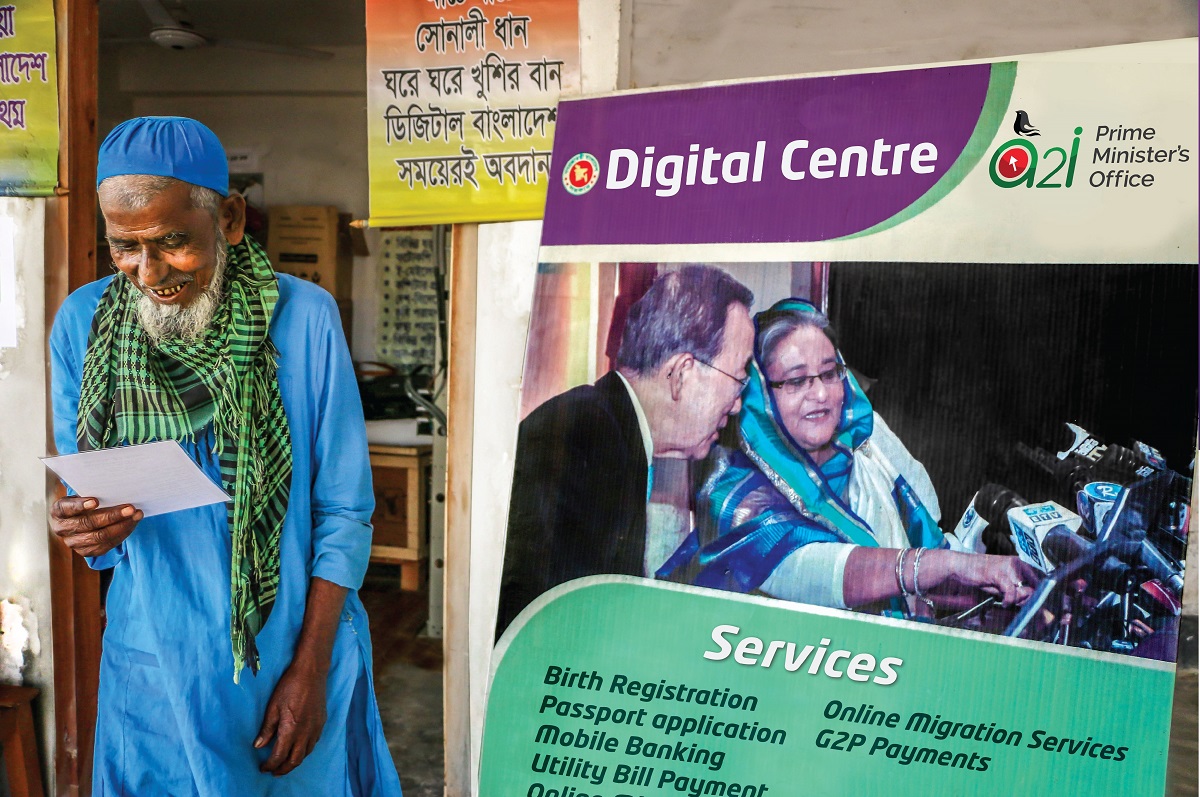©UNDP Bangladesh
In the city of Cotabato, Philippines, there is plenty of food and medicine for the old and the infirm, but accessing it is a challenge.
The bureaucratic hurdles to obtain a senior citizen’s card or a grocery booklet can leave many short of food and susceptible to illness. There is only one government office that serves a wide region, which provides the card and booklet. For many it is a journey that can take several hours, and when they get there, they may still not get what they came for.
Now, that lethargic bureaucracy in Cotabato could soon be a thing of the past, as the country adopts lessons from a new leader in innovative public service delivery: Bangladesh.
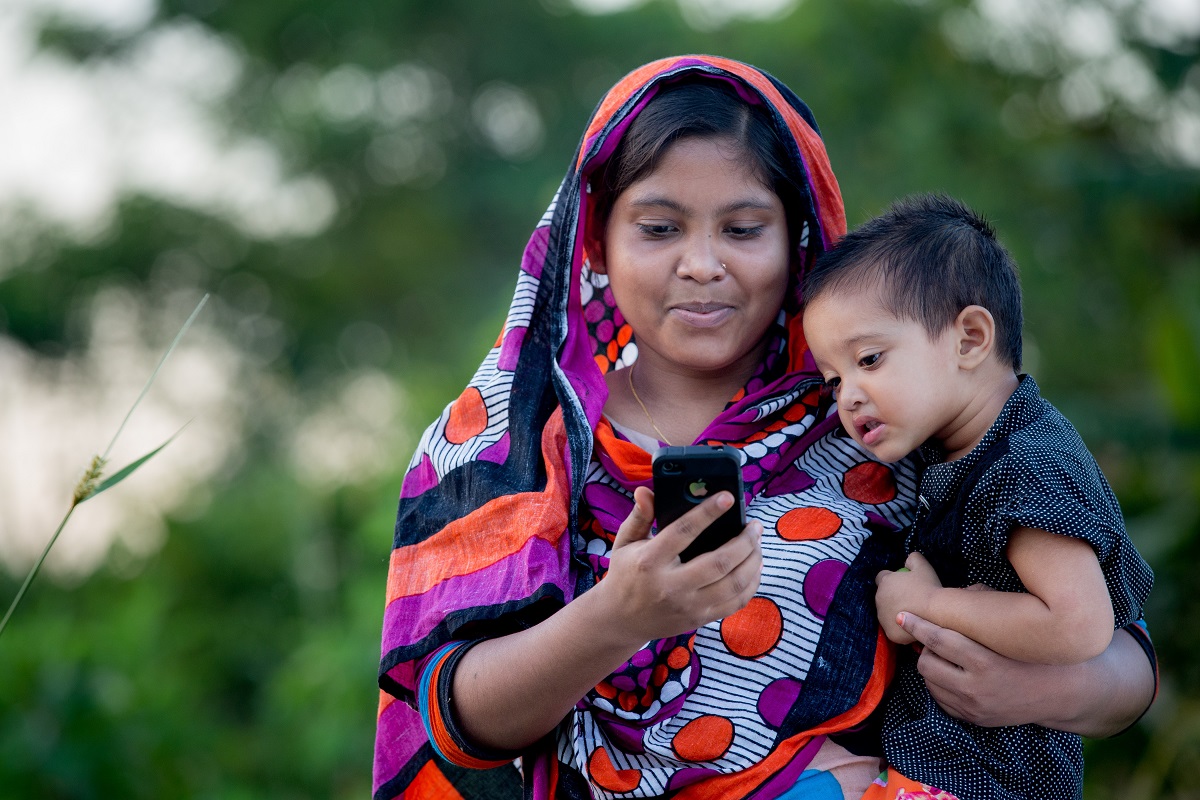
to access vital services from digital centres, within a walking distance of four kilometres.”
Over the past decade, the ‘Access to Information’ (a2i) project, set up by the UN Development Programme in partnership with the Government of Bangladesh, has been driving innovation in public service delivery.
It has dramatically cut down the time, cost, and number of visits required to access services, while hacking away at bureaucracy and corruption. Now, millions of Bangladeshis, even in the country’s remotest areas, can easily obtain a range of public services, such as birth certificates and land records, through digital centres.
The centres, located in hundreds of villages across the country, are used by more than two million people each month. Another a2i scheme that provides online training has helped over 17,000 youth develop skills for specific jobs, through an apprenticeship programme.
“Our strong projects have revolutionized public service delivery across Bangladesh and can serve as models for countries around the globe,” said Anir Chowdhury, a2i’s chief policy adviser. “This is an opportunity for us to share innovative solutions and for countries to tap into digital experiences, so that we can collaborate and cooperate on social empowerment initiatives.”
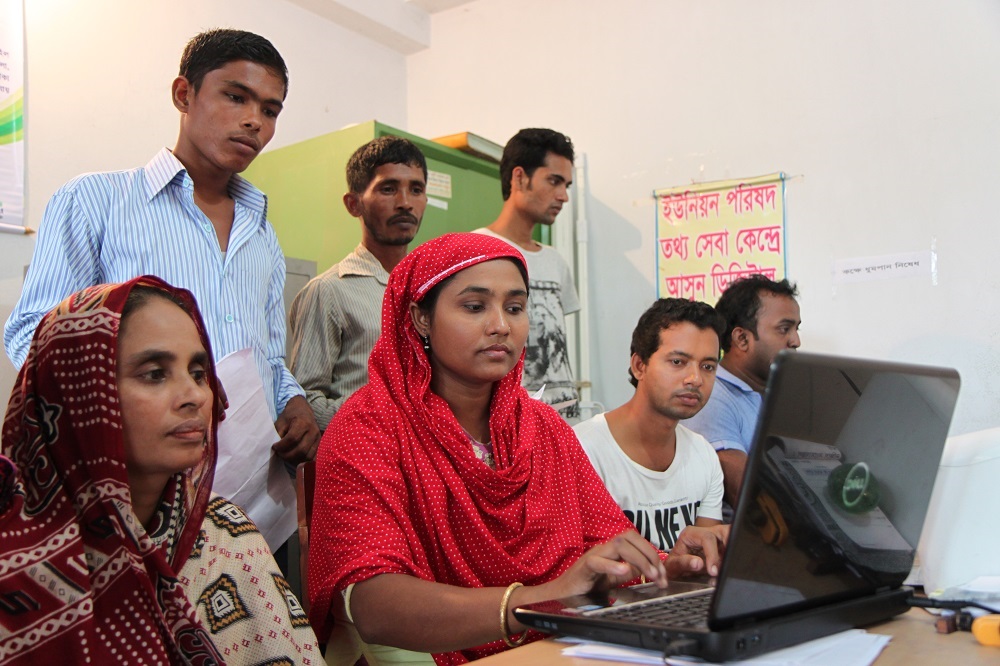
by 65%, cost by 73% and the number of visits by 51%. A study of 85 services over a period of nine years reveals that simplification and digitization saved citizens about US $8.14 billion.”
From the Philippines to Fiji, from Peru to Somalia, countries across the world are seeking better ways and means to deliver public services to their citizens. They are looking for solutions to fix acute problems that fit specific situations, with the aim of achieving the Sustainable Development Goals (SDGs) – a plan agreed to by world leaders to protect the planet and bring prosperity to all peoples, by 2030.
Now, with the support of UNDP, a2i is spreading its innovative solutions to several countries. It is working with local authorities in the Philippines, where public service delivery in small cities and towns faces multiple challenges. These challenges include bureaucratic rules, a lack of technology, and poor decision-making. The country’s decentralized structure has spawned diverse administrative systems that are poorly managed and don’t link-up with one another.
Geography creates another set of hurdles, as many people live on remote islands or in mountainous regions. Some areas are prone to natural disasters and some are plagued by inter-religious strife, further compounding the situation.
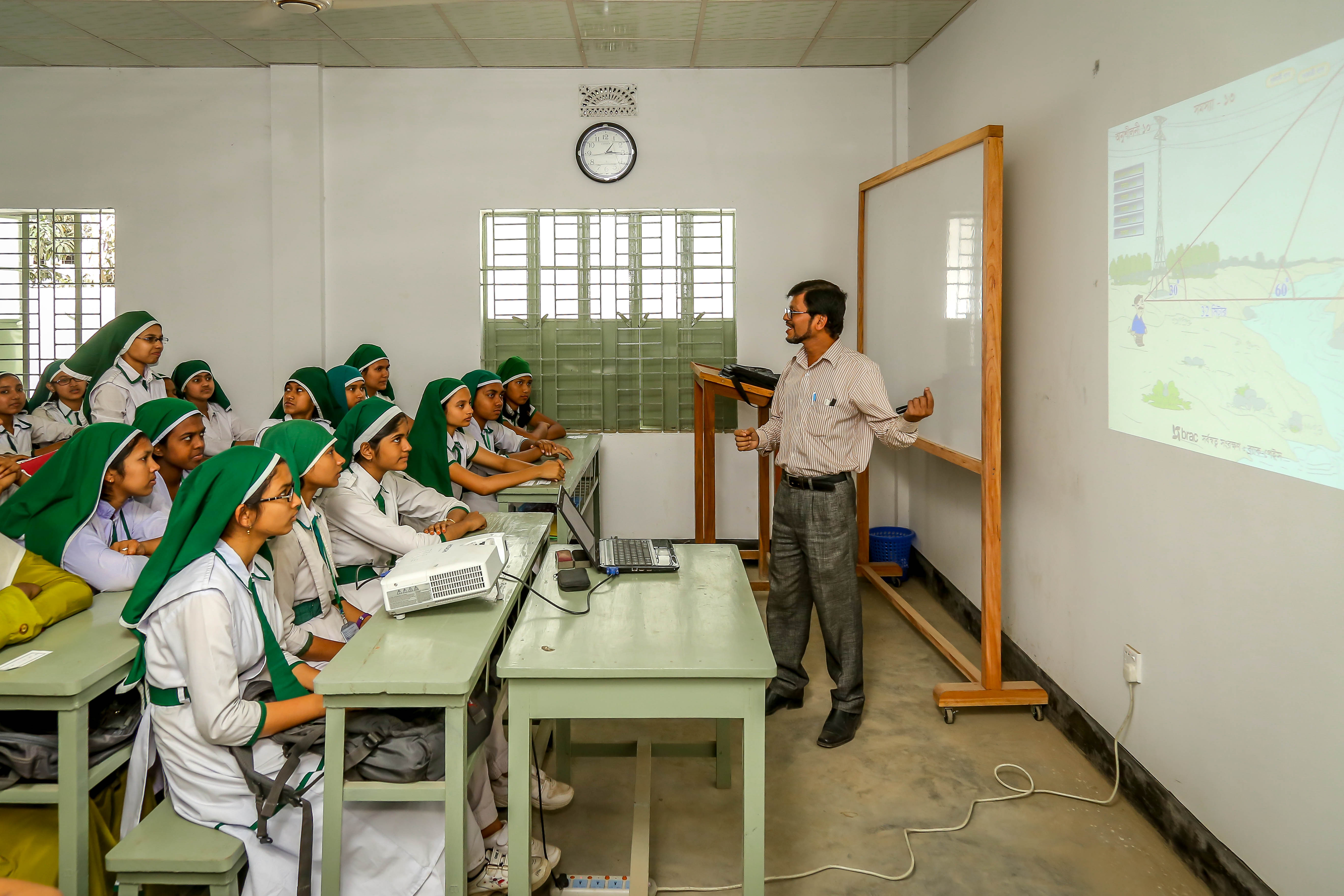 |
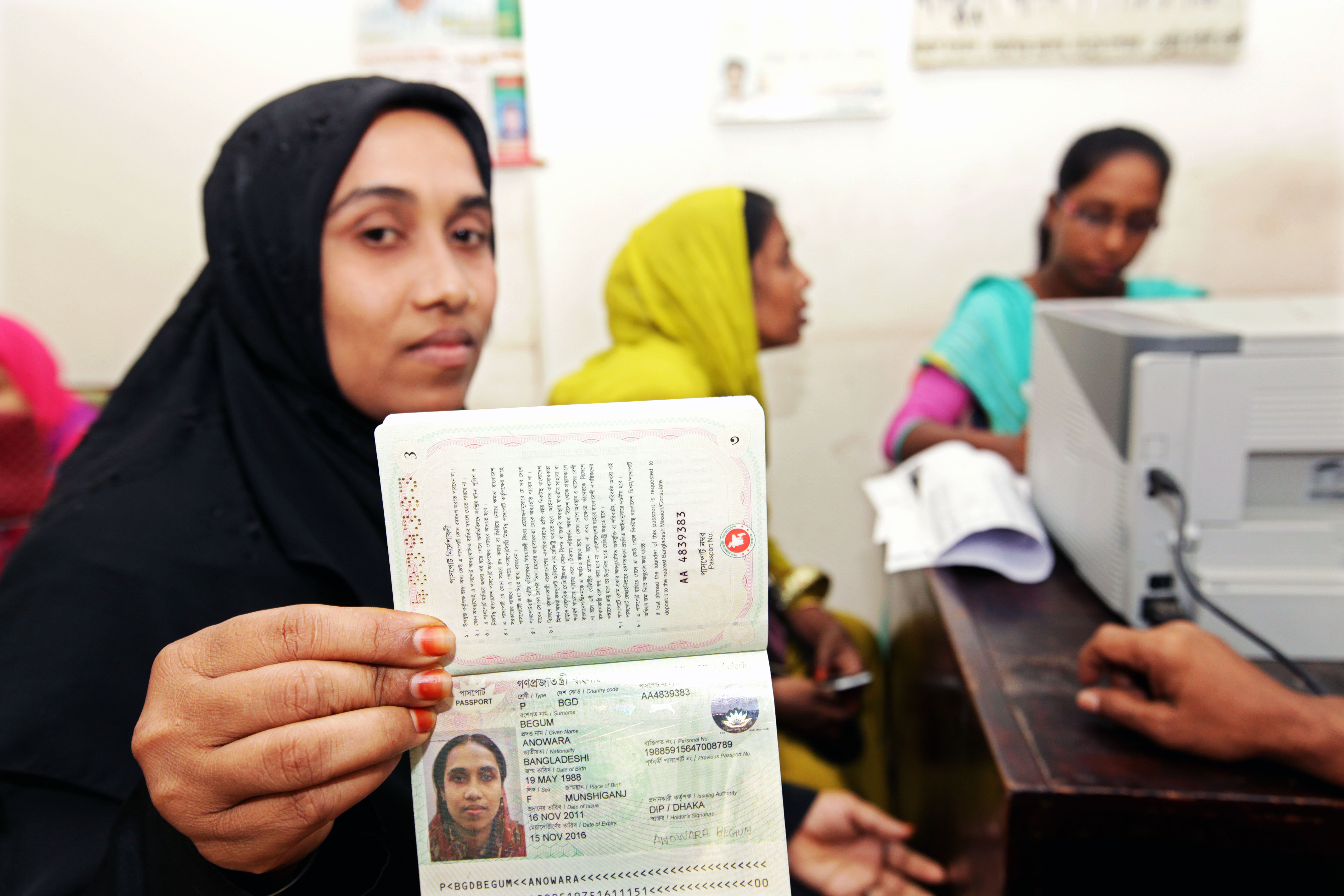 |
“Inspired by a2i’s solutions, the Philippines Start-to-Finish Service Delivery Tracker allows citizens to submit online requests and track delivery reducing time, cost, and visits needed for securing the service.”
Now, inspired by a2i’s solutions, the Philippines has introduced a ‘4D’ design and development programme, to transform traditional services into efficient digital services. The process involves four steps: diagnose, design, demo, and develop. The first three steps are completed within 10 days, and digital services are developed and delivered within six months.
In a workshop organized by UNDP in the city of Cotabato, politicians, citizens, and bureaucrats identified 4D as the best solution for local government, to overhaul unresponsive and unaccountable public service delivery. The aim is to ensure efficiency and effectiveness through new services that are user-centered, simplified, integrate digital tools, and use data, when available.
Meanwhile, in the Pacific region, the Government of Fiji is adopting a2i’s ‘4D’ system, to track countrywide delivery of a Poverty Benefit Scheme. The result, a web application called the ‘Start-to-Finish (S2F) Service Delivery Tracker.’ The tracker, also available as a mobile app, allows citizens to submit online service requests and to track the progress of delivery.
The application generates auto notifications, an SMS or email, and processes and delivers services online, reducing time, cost, and visits needed for securing a service.
In 2018, UNDP’s ‘Innovate for Somalia’ project invited a2i to conduct a series of workshops, to explore how digital applications can reform delivery of public services. Officials from the Prime Minister’s office and multiple ministries explored opportunities for transforming services, using digital technology.
The discussions led to Change Lab, an online platform, where Somalis can quickly access a host of public services, such as: business, vehicle and property registrations, passport requests, and access to IDs and birth certificates.
At the UN World Data Forum in Dubai, in 2018, a2i signed a Memorandum of Understanding (MoU) with the Government of Peru’s National Institute of Statistics and Informatics (INEI), to share expertise and develop a ‘SDGs Tracker.’
The tracker sets targets and follows the progress of each SDG indicator. It is expected to lead to efficient and effective policy making, for inclusive and sustainable development.

 Locations
Locations